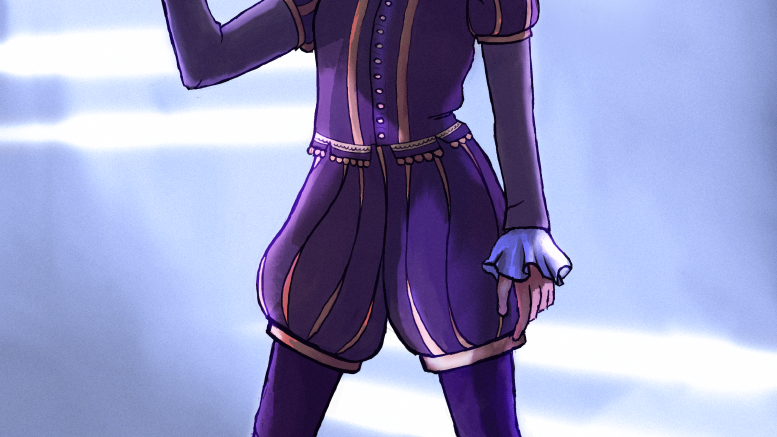A common question that I hear almost every day as an English major is, “why?”
From discussions with my peers, it’s painfully clear that this experience is not unique to me.
There is a simple truth that I have preached to new students for a few years: finding meaning in your major is key to surviving four or more years on campus.
For me, one of the major ways of finding meaning in my major resides in the connection of famous literary works and figures to whatever is playing out of my AirPods that week. In my case — as all my friends would attest — it is usually Taylor Swift.
This past month, one of my classes studied Shakespeare’s Richard III, which was entered into the Stationers’ register — a guild in London that handled bookbinding and bookselling — on Oct. 20, 1597. Coincidentally, I was also primarily playing a lot of Swift’s album Midnights this past month, which was initially released on Oct. 21, 2022.
Not only do these two texts — in English classes, everything is a text — almost have a release date in common, they both somewhat surprisingly share incredibly similar themes and motifs. Swift’s song “Anti-Hero” mirrors the soon-to-be-King Richard’s opening soliloquy in the 1597 edition of the play, with both openly centring on themes of self-loathing.
Swift famously sings, “Sometimes, I feel like everybody is a sexy baby and I’m a monster on the hill.” Describing yourself as a “monster” is a form of self-hatred, particularly when compared to the “sexy babies” that surround you. This line not only enforces beauty ideals through the use of “sexy,” but additionally emphasizes the importance of youth.
While this line has been joked about since the song’s release, it relates to Richard’s self-hatred about his appearance. In terms of sexiness, Richard openly laments how a knight, who possesses prior glory from the Wars of the Roses, which resulted in Richard’s reign, now “capers nimbly” in the bedrooms of women. Capering to a bedroom, in this context, could be thought of as a sneaky link — implying the knight is experienced with sex.
Richard, however, lacks the ability to follow the romantic trends of the time. Additionally, the physical action of capering refers to a trotting motion, requiring a certain level of physicality. Richard feels as if he cannot do this because of his physical disability, something Shakespeare intensely caricatured. With the frequent dehumanizing language used toward Richard throughout the play, I can easily see the potential link of Richard feeling as though he is a “monster on the hill.”
Earlier in the soliloquy, I see explicit word-for-word connections between Swift’s lyrics and Shakespeare’s lines. Swift declares “I’ll stare directly at the sun but never in the mirror,” in “Anti-Hero,” highlighting a self-reflected ability to achieve incredible feats, yet not to face the truths of her inner self. While many may believe celebrities are paragons of confidence, no one can escape the treachery of their own mind. Some may dub this a case of imposter syndrome.
Further, Swift’s mention of a mirror links to a moment when Richard states he is unable to “court an amorous looking-glass.” In simpler terms, he cannot look in a mirror either — for some of the very same reasons.
While I am not trying to say that Taylor Swift and Richard III are twins, it is still incredibly interesting how Shakespeare’s perspective on a murderous monarch can be reasonably connected to Taylor’s radio hit — even over 425 years later.
Back to the making of meaning: especially as a new honours stream student, it seems as if everyone has spent a varying amount of time questioning their majors – even I have. Yet, there are bright moments where I am reminded of the core reason behind my choice to study English. I maintain the belief that we as students can find great multidimensional value in connecting our favourite tracks with the books, films and television shows we’re currently consuming.
I think this is especially true when analyzing infamously difficult texts such as Shakespeare’s plays.
Whatever tunes are coming up on your playlist, whether through Spotify, Apple Music or — shudder — Amazon Music, I hope you take this article as a sign to make some meaning, even if it doesn’t include hypothesizing about a history-hated king in connection to the greatest pop star of our era(s).





